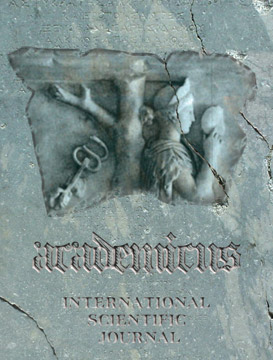Title:
Author(s):
Abstract:
Every day, scientific knowledge is growing exponentially and either researcher, nor students have the ability to keep up with literature. On the other hand, new generations of students have different views of information access from that of their older professors and no longer need to depend on professors to obtain information. However, sometimes they are unable to relate this new information to existing knowledge or to transfer it to solve novel problems. It is a challenge for medical educators to search for new pedagogical models that promote in their students the development of strong cognitive processes that allow them to select, integrate, and transfer the new learning and, therefore, to reach meaningful learning. Meaningful learning occurs when the learner interprets, relates, and incorporates new information with existing knowledge and applies the new information to solve novel problems. Meaningful learning, then, involves building multiple representations (mental models) of knowledge. In medicine, meaningful learning implies that knowledge acquired by the students makes sense in their future medical practice and allows them to solve different problems In biology, meaningful learning means that the students are able to apply what they know about biology to novel situations, they are able to predict and explain the responses of a biological system if it is disturbed and sometimes to solve quantitative problems (calculate something). This is easier in the clinical setting than during basic science instruction. During the latter, students receive a great amount of information, some of which does not have direct medical application. Thus, many students in the first semester use rote memorization to acquire a large amount of information that they will forget after the exams. In this study, we addressed the following research question: does the concept mapping methodology, articulated with the mediated learning experience, increase meaningful learning in students attending to the cardiovascular module of a biology course?
Keywords:
scientific knowledge; medical educators; meaningful learning; learning experience; pedagogical models; biology;
Full Text PDF:
References:
View complete reference list, click
here
Digital Object Identifier DOI:
The article's content ©Academicus™ When the biology, pedagogy and teaching standards come together
by
Dr. (PhD) Adanela Musaraj
is licensed under a Creative Commons
Attribution-NonCommercial 4.0 International License.
Presented:
November 2012
Included for Publishing:
December 2012
Published:
January 2013,
Volume 4,
Issue 7
Academicus International Scientific Journal is an Open Access Journal. This means that all content is freely available without charge to the user or his/her institution. Users are allowed to read, download, print, search, or link to the full texts of the articles in this journal without asking prior permission from the publisher or the author. This is in accordance with the BOAI definition of open access. Users are obliged to cite the source (Academicus International Scientific Journal) and the author, according to the international citation standards.
To learn more about the OA Policy followed by Academicus ISJ, read Journal Regulations
Academicus
International Scientific Journal
pISSN 2079-3715
eISSN 2309-1088
Address:
Sheshi i Flamurit, Rruga Muze
Al-9401 Vlorë, Albania
Tel: +355 68 60 60 555
info@academicus.edu.al
https://academicus.edu.al



 Scholar
Scholar
 Crossref
Crossref
